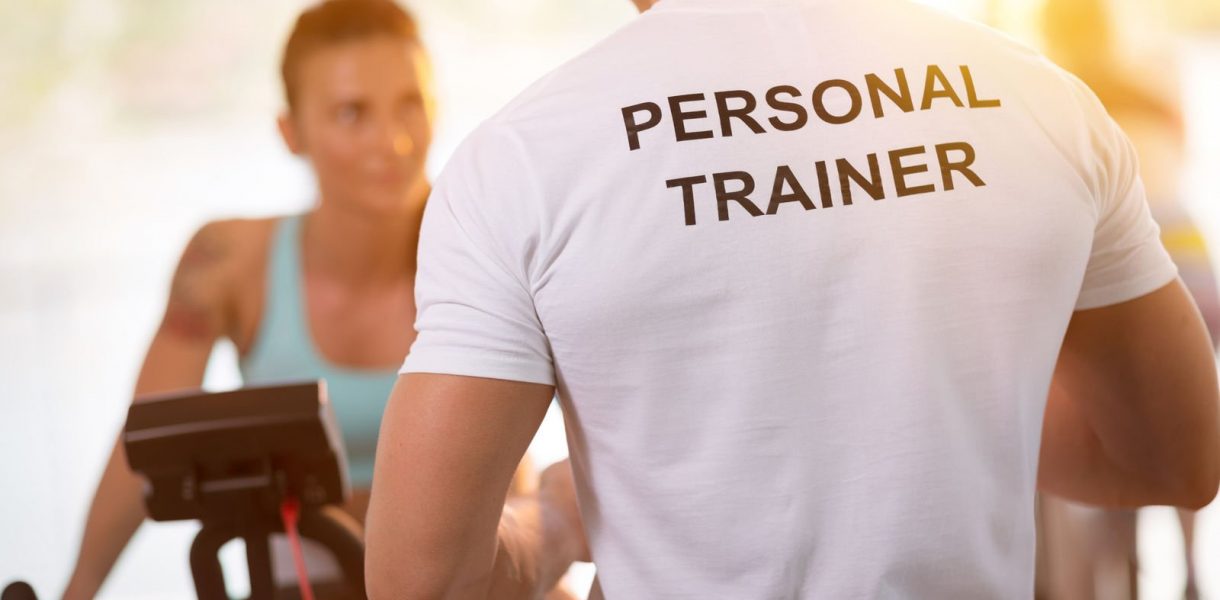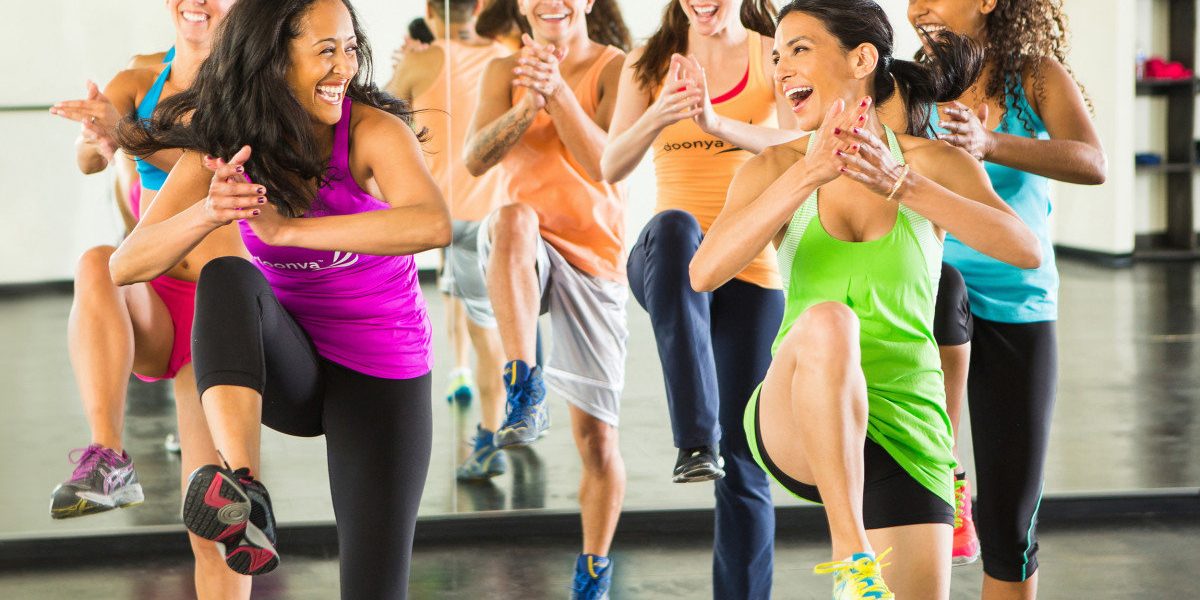The longer the break, the harder it will be to start again. Anyone who has only seen sport passively from television to date has it all the more difficult.Protein shakes, drainage tablets and other “slimming agents” are now experiencing a real boom. True to the motto ”
Enandrol Testo E 250 is a popular choice for bodybuilders and athletes looking to increase their muscle mass
The bacon has to go “, many unhealthy crash diets make use of excessive sports programs and the miracle drugs described.
Disadvantage: The desire for a healthy diet and regular exercise does not last. No wonder, given that the food selection is restricted too rigorously and that exercise is too intense.
It could be so simple: change your diet permanently and do sport regularly . Anyone who just wants to slim down quickly for the bikini figure shortly before their vacation has little chance of a permanent change in diet and exercise habits.
In order to spark the desire for sport, the upcoming vacation can be a point of motivation, but it should continue after the vacation. Otherwise the dreaded yo-yo effect threatens.

I would like to, but …
I have no time, no desire, no money or, or, or…. The list of excuses for those who don’t like sports is long. Those who are honest with themselves know that there is no good excuse for not exercising other than illness.
Even busy people somehow find time to be physically active. Sport is a matter of priorities. Instead of thinking about why it didn’t work out again with the sport, it is much better to ask yourself how you can motivate yourself better.
And that brings us to the first tip for more motivation in sport: the right motivational background.
Tip 1: Sport is important to me because …
There are people who just don’t want to do sports. Physical activity is not important to them and therefore they do not feel guilty about not doing sports. In that case there is little that an outsider can do. After all, it is up to everyone whether and to what extent they do sports.
On the other hand, there are people who repeatedly decide to do (more) sport, but fail to make it. These in turn are often plagued by their guilty conscience. After all, exercise seems to mean something to them. Not having made it again is perceived by them as a kind of defeat .
This is a good starting point. Because where there is a will, there is a way. This just has to be found. A prerequisite for more motivation in sport is the right motivational background.
Why is sport important to me? What do I hope for more exercise? A fitter figure, more muscles, better health? Is it my personal desire to do more sports or am I being pressured by my partner, friends, family, colleagues or other outsiders?
Answering all of these questions honestly helps you become aware of your own wishes and goals that you want to achieve with sport. The sport project will only have long-term success if the motivation comes from yourself .
Why? Because then you no longer have the feeling that you “have to” do sport, but that you “want” to do it of your own free will.
Tip 2: Start immediately!
” What you can do today, don’t postpone it until tomorrow. ”
Anyone who has determined to do sports should start immediately. There is no reason to wait and put resolution back on the back burner. That just ends in guilt and new good intentions.
It also makes no sense to wait until you finally feel like exercising. The lust doesn’t come by itself.
Many find it difficult to start because they fear the effort and only think of the effort. But every non-sports enthusiast should be aware that the start can include the most difficult and negative thoughts. But that’s completely normal.
How should body and mind know that sport is good for you and that it brings happiness?
Positive thoughts related to exercise have to be built up first. Over time you will combine the good feeling after training with physical exertion and thus build up the motivation for regular sport.
But this process takes time and does not happen overnight. In this respect, you should give yourself the chance to make sport a habit through regular training.
At the beginning: close your eyes and go through. The inner weaker self is the most persistent in the starting phase, but not invincible. The most difficult thing is to get up to do sports, put on or take your sports gear and leave the house. But if you have managed that, there is a very high probability that your training program will continue to the end.
In this respect, it is crucial to have enough willpower to bring yourself to sport at all . If you are already on the way, persevering is much easier.
So if you realize that acute displeasure is nothing unusual at the beginning and tackle it with a lot of willpower, positive thoughts and motivational aids, you will successfully master the difficult start phase .
Tip 3: Remove hurdles
What is actually stopping me from exercising? Often it is the habits of everyday life that make starting a more sporty life almost impossible. Well-established rituals must first be relaxed and the hurdles of everyday life removed.
It is helpful e.g. to pack the sports bag the day before, possibly already buying a sports drink and putting the bag in the hallway. So it is guaranteed not to be overlooked.
It can also help the environment to talk to family, friends and work colleagues about the new sports plans. If everyone knows that you drive to the sport right after work, the chances of changing your mind are reduced.
Especially at the beginning, being open with your own plans can be very helpful and the decisive initial spark. The self-built pressure (I have no choice) means that everything is done not to show any nakedness. After all, you really want to save yourself the annoying questions – if you don’t persevere – don’t you? The effect is even higher with people who are not too close (colleagues, acquaintances).
The fewer hurdles along the way to the sports plan, the better. Then there is practically nothing in the way of physical activity and the risk of being distracted or of losing interest at the last minute is reduced.
At the same time, you will have to spend less motivation to get up to sport, after all, the path to sport is free .
Tip 4: Appointments with yourself
Just like other fixed appointments with business partners, colleagues, friends, etc., appointments with yourself should be binding and adhered to .
It is best to enter the training days and training times by hand in the calendar – this increases the deadline pressure and creates a more binding character than if you only think about everything theoretically.
Sometimes you have to learn to defend these appointments against unforeseen incidents (as you would probably do at an important business meeting). Family and true friends will understand this.
In order not to constantly run out of time, it helps to set other appointments more generously and to include more buffer times between the individual appointments.
If you learn to take yourself and the sport seriously and seriously, it will be easier to make regular exercise an integral part of your life.
Tip 5: Increase the fun factor
” Sport is murder ” – You won’t get very far with this often-quoted attitude. If you want to stay on the ball in terms of sport, you have to develop fun in sport. A decisive success factor is finding the right sport for you .
Many force themselves to the gym or to run, with the result that they don’t stay at it for long. Nothing can come of this with compulsion and acute reluctance either. Depending on the type, different types of sport are promising.
Some prefer to train on equipment in the gym, others like to run their laps around the lake on their own, and still others prefer club sports. Whether strength training, jogging, swimming, handball, yoga or dancing – the selection of sports is huge . If you try a lot, you have a good chance of finding a sport that is really fun. Motivation comes naturally when you enjoy exercise.
Which the suitable sport is for oneself, everyone has to find out for themselves. Sometimes it helps to think back to childhood and adolescence. Anyone who used to like to roller-skate, swim or ride a bike may still have a lot of fun with them today.
Ideally, you combine sport with pleasant things that you enjoy doing. Who e.g. likes to read or watch television, can do so at home or at the gym. Nature lovers who like to be in the country, on the other hand, will find it much easier to do regular sports with outdoor sports.
So that the sporting activity is not connected with half a trip around the world (which quickly has a negative effect on motivation), you can specifically look for sports opportunities in the vicinity of your place of residence or work.
True to the motto ” Why wander far away when the good is so close “, short distances can keep the desire for exercise alive in the long term.

Tip 6: Variety instead of boredom
Months of monotonous training seem boring in the long run. Monotony and monotony are also what keep many people who are grumpy about sports from even starting their training.
One thing is certain: boredom is the absolute motivation killer. It is all the more important to spice up everyday training with the necessary portion of variety .
Even a small training variation , such as a different running route, new strength exercises or the inline skates instead of the bike can give you a boost in motivation. Or you try a completely new sport, type of training or a new class in the gym.
An interesting environment, new faces and other movements increase the fun factor. Exercising together with a training partner, in a group or with music in the ear are also effective remedies against monotony.
Joint training with a partner, a friend or in a sports club creates additional commitment. After all, there are fixed meetings that one is reluctant to cancel on the basis of flimsy reasons.
The question ” Am I doing sport or not today? ” is therefore not even up for discussion. This makes it much easier to motivate and persevere.
The everyday movement should not be neglected either. So that sport no longer becomes an unpleasant duty, the head has to be reprogrammed for movement. This can be achieved through regular activities in everyday life, e.g.
Stairs instead of lifts, bicycles instead of buses or walks instead of canteens
Over time, exercise becomes a natural and natural part of life. Active people generally have more fun in different sports and are more motivated – an important factor to outsmart their weaker self in the long run!
Tip 7: Set specific goals
As we have seen, the motivational backgrounds for exercise can vary. Depending on the type of sport, this also results in different goals.
For some, optical motifs are in the foreground. You just want to get slimmer in order to fit into chic clothes again, to look good in a bikini, to get a narrower waist, to look sportier and to make an overall fitter impression.
A desirable goal could e.g. to fit back into the old jeans that have been in the closet for years. Since appearance and well-being play a major role for these people, you should also feel comfortable in your skin while exercising. A new sports outfit or chic sports shoes can be very motivating here!
The others have set themselves the goal of building more stamina, becoming more flexible, building muscles or feeling physically fit again. The focus here is less on the external appearance than on physical activity and fitness .
Examples of possible goals in this case would be e.g. Running for 30 minutes at a stretch or building 3 kg of muscle mass.
A third, equally important goal in sport is health. It is of course best to start with regular exercise and a healthy diet as a precaution and not when it is too late (e.g. with diabetes, high blood lipid levels, etc.).
But even then, exercise can help to improve the health situation. Physical activity not only helps prevent cardiovascular diseases, strengthen bones and improve mental performance. Regular exercise also brightens the mind (for depression) and even gets the sex life going.
Worthwhile goals for the benefit of better health could e.g. be walking for an hour three times a week, eating more salads, vegetables and fruits, or cutting down on sweets. Anyone who already suffers from health problems should consult a doctor before implementing a sports and nutrition plan in order to avoid health risks.
Depending on what type of sport you are: Concrete goals can help you implement your athletic resolutions.
Important: The goals must be realistic.
Tip 8: stay realistic!
Anyone who thinks they can lose five sizes of clothes in a short period of time, develop into a marathon runner or reach the cholesterol levels of a well-trained 20-year-old will be disappointed.
At the beginning of the training, the following applies: Slowly, but steadily. Light, but regular training units are much more effective than occasional excessive sports units until you are completely exhausted. The body will thank you and the fun of sport does not go so quickly either.
Those who tend to overestimate themselves can ask their partner, family or friends whether the goals are realistic.
The better the person knows you, the better. As a morning grouch, it is highly unlikely to bring yourself to a two-hour morning run at the start of the sports program before work.
It is also not motivating to compare yourself to fitter training partners or gym goers with model figures. Instead of building up unnecessary pressure to perform, it is important to increase the fun factor and to reflect on your own goals.
Why do I want to do sports? What is my next (realistic) goal? And what specifically can I do to get closer to this goal?
All of this should be put in writing in order to find the right approach to sport step by step.
Examples: Swim for an hour on Wednesdays, walk around the lake on Sundays, stop eating sweets after 6 p.m., drink calorie-free drinks, etc. Even if the steps seem much too small (from your own point of view): Constant dripping wears away the stone. Every step is better than none and every step, no matter how small, leads to the goal!
Even small changes in exercise and eating behavior can lead to considerable success. But you also have to perceive this …
Tip 9: Documenting successes
Most people tend to see the failures more easily and pay too little attention to successes.
Success is the reward for the hard work and not something to be taken for granted!
You can and should therefore pat yourself on the shoulder as soon as a training goal has been achieved.
A Training diary , in which you can enter your exact training data, is ideal for documenting training successes.
Depending on the training goal, exact records can be kept there of time, duration, type of exercise, BMI, weight, waist circumference, etc.
Advantage: In addition to weight loss, athletic progress (e.g. longer running routes thanks to better fitness) is better noticed. Thanks to such motivational boosts, the next training session is all the easier.
If you want, you can also document your diet while doing sport. Some even keep their diaries online in the form of a blog . The fact that others read along and share in personal success creates additional commitment. After all, you don’t want to embarrass yourself.
Others measure their body data at regular intervals using special self-tracking programs on the Internet and share their results on social networks.
Everything that can be measured via apps, heart rate monitors, special bracelets, mood barometers and other aids such as online services and wireless devices can be recorded. Whether weight, pulse rate, blood pressure, blood sugar levels, kilometers run, floors climbed or the current mood – your own body is an almost inexhaustible source of data.
The background to self-measurement is self-optimization. Since people usually difficult to assess yourself, the evaluation of the data enables you to recognize habits or previously neglected connections, to change them and to develop into the person you want to be. The awareness that you are in control of your own body can create a general feeling of elation, which motivates you to keep going.
However, self-tracking also has its dangers. On the one hand, data protection on the Internet is full of holes, on the other hand, measured values can also be misinterpreted. It is therefore advisable to be careful with sensitive information and only share certain data with friends. The interpretation of the (health) measured values is usually better off with an experienced doctor than with the community.
Regardless of whether you document your success with pen and paper or with self-tracking programs – the main thing is to keep the success in mind in black and white. Because on the long way to the big training goal, every little step counts!
Tip 10: Set reward incentives!
Rewards represent success – like a kind of certificate . Those who have achieved a specific training goal can and should reward themselves for it. The prerequisite is of course that you have set yourself clear and verifiable goals beforehand, which realizes promptly can be.
If the goal has been achieved, there is a reward. Whether going to the cinema or a restaurant, a wellness day, a new sports outfit or a new perfume – everyone can reward themselves with something that gives them pleasure. The reward should be in a healthy proportion to the performance. In other words: For greater successes (first half marathon, 10 kg lost, etc.), the reward can be bigger. Big or small – the main thing is that the reward takes place.
For some it may be strange and difficult to reward yourself for what appears to be a small success. But rewards for achieving goals go a long way towards sustained motivation . Rewards as rituals help to internalize and automate the new movement behavior, i.e. to make it a habit.
If the positive effects of regular exercise are only noticeable on your own body, rewards move more and more into the background . The willingness to act for sport then comes almost by itself, as the motivation comes from within.
Nevertheless, you still need stamina and willpower to stay on the ball in the long term. Regular reward incentives can still positively reinforce the desired behavior.
conclusion
Everyone has had no desire for sport at some point. In particular, people who have previously been unsportsmanlike or who have had a long break from training find the beginning difficult. This is not unusual, after all, the new movement behavior must first be internalized and become a habit. This requires time, motivation and perseverance .
Above all, it is important to stick with it and develop fun in the sport. Dealing with your own wishes and training goals can help find the right exercise program. The following applies: trying is better than studying. Instead of engaging in any kind of sport, give yourself time to find out what is really fun.

Whether walking, dancing, Zumba, jogging, climbing, swimming, boxing, tennis or weight training – the selection of sports is huge and offers the right program for every type of sport!
Concrete, realistic and timely training goals are important motivational aids, as they make the success of the effort measurable. Fixed (and binding) appointments in the calendar and a training diary help you achieve your training goals. At least as important as concrete goals are rewards , which additionally strengthen the new movement behavior.
Ultimately, the analysis of personal motivational backgrounds as well as goals and rewards aim only at one thing: to recognize the advantages of sport . Those who constantly believe that they “have to” do sport will have little chance of success in the long term. The goal should always be to make regular exercise an integral part of life that you no longer want to do without.
Correctly exposed sport is no longer murder, but a great means of improving the quality of life . With sport you “may” do something good for your health, get your body and mind going, reduce stress and burn calories at the same time.
Once you’ve persevered for some time, you will appreciate the numerous benefits of exercise and realize that exercise is better. It is never too late to start exercising and do the best possible for your health and wellbeing.
Those who are motivated, relaxed, realistic and flexible have a good chance of success to enrich their life with more everyday activity and regular training.



